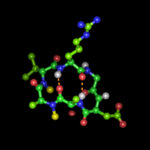Description:
The long, thin, bright red chili pepper (Capsicum annuum) is a member of the nightshade (Solanaceae) family. It’s related to other capsicums, including sweet bell peppers, jalapeños, poblanos, serranos, and the notoriously spicy ghost peppers.
The pepper grows on the cayenne shrub that likely originated in Central and South America, but today it’s cultivated around the world in tropical climates such as India, East Africa, Mexico, and certain areas of the United States.
The pepper grows on the cayenne shrub that likely originated in Central and South America, but today it’s cultivated around the world in tropical climates such as India, East Africa, Mexico, and certain areas of the United States.
Overview of Benefits:
Cayenne pepper might be something you would be surprised to learn has health benefits. And the list of the benefits offered by cayenne peppers is rather extensive. The spicy pepper contains capsaicin, which is the substance which cayenne pepper can attribute its positive health factors.
Pain Relief:
Capsaicin in peppers has been shown to assist with pain relief when applied topically to your skin. It reduces the amount of a chemical messenger known as substance P, which sends the signals of pain to your brain. When this substance is lowered, you feel less pain. The FDA has approved topical capsaicin treatments for different types of nerve pain and it has shown that help relieving arthritis pain may also prove fruitful.
Psoriasis
Topical creams containing capsaicin can help reduce the itching and assist with skin inflammation that is related to Psoriasis, which is a skin autoimmune skin condition that causes itchy scaly patches to arise on your skin.
Metabolism & Digestive Health
Research has shown that it can increase the heat your body produces which can give your metabolism a slight boost which will allow you to burn more calories. It can also assist with reducing hunger to help you eat less.
And while most may find it ironic as they associate spice with heartburn, capsaicin in cayenne pepper actually stimulates the nerves in your stomach that produce digestive fluids which help reduce chances of heartburn. It also helps prevent H.pylori bacteria which are a common cause of stomach ulcers.
And while most may find it ironic as they associate spice with heartburn, capsaicin in cayenne pepper actually stimulates the nerves in your stomach that produce digestive fluids which help reduce chances of heartburn. It also helps prevent H.pylori bacteria which are a common cause of stomach ulcers.
Blood Pressure & Heart Health
Capsaicin is a stimulant. Not just any type of stimulant, it is a blood stimulant. It has a special effect on your blood when it is ingested and can assist significantly with lowering and regulating your blood pressure. Research has also shown that it has a unique ability to help assist with healing damaged arteries that it encounters within your bloodstream.
Additional Nutrients:
Cayenne Pepper, while it may not be able to be ingested in large amounts, does have surprising nutritional value even when intaking small portions and include a variety of nutrients and antioxidants:













